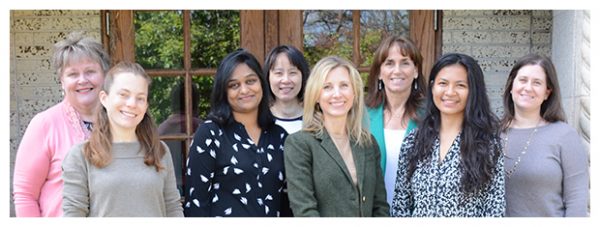
Interdisciplinary project tackles the environmental impact of the textile industry
“Few people actually know that the apparel industry is the second-most polluting industry in the world, behind oil and gas,” shares Katie McShane, Associate Professor of Philosophy, who focuses her research on ethical theory and environmental ethics.
McShane is a member of a Global Challenges Research Team of the CSU School of Global Environmental Sustainability (SoGES). Her team focuses its work on the overconsumption of clothing, and specifically current practices of post-consumer textile waste management and community perceptions regarding clothing lifecycles. Each member of the interdisciplinary team, consisting of faculty in Design and Merchandising, Political Science, Communication Studies, Atmospheric Science, and Philosophy, brings a unique perspective and set of skills to the project.
During this academic year, the group researched students’ consumption behavior and attitudes concerning clothing, which included focus groups and a quantitative survey. In March, they hosted a series of student engagement activities to raise awareness about the environmental and social costs of the apparel industry. The diverse events sparked student interest and encouraged involvement from across campus. The team invited keynote speaker Otto von Busch of the Parsons School of Design to offer a lecture and discussion and hosted a networking event with industry, government, and the academy. In addition, they led an environmentally friendly t-shirt exchange, an upcycling event to turn old t-shirts into handbags, and hosted a film screening of The True Cost, a documentary about clothing and the impact the industry is having on our world.
“The events made a lot of students more aware of sustainability issues in the apparel industry. When people think about sustainability, they usually think about transportation or household recycling. They rarely think about clothing purchases in terms of sustainability,” explains McShane.
The team received a follow-up grant from SoGES for 2017-2018, which it will use to take community understanding of overconsumption developed this year and shift the discussion to practical solutions. The team will investigate what we can do about this problem at the local level and work with consumers, businesses, and local municipality officials in Northern Colorado to develop evidence-based policy recommendations.
_____________
Ken Shockley, the newly arrived Holmes Rolston III Endowed Chair of Environmental Ethics and Philosophy, will also partner with SoGES this coming year as one of six faculty Research Fellows across campus. Shockley will investigate how our responses to environmental problems are shaped, motivated, and justified at the individual and public policy levels. “The SoGES resident fellowship will allow me to engage more fully the extraordinary breadth and depth of environmental research both on-campus and in our region as I attempt to develop my own contribution to this community,” explains Shockley.